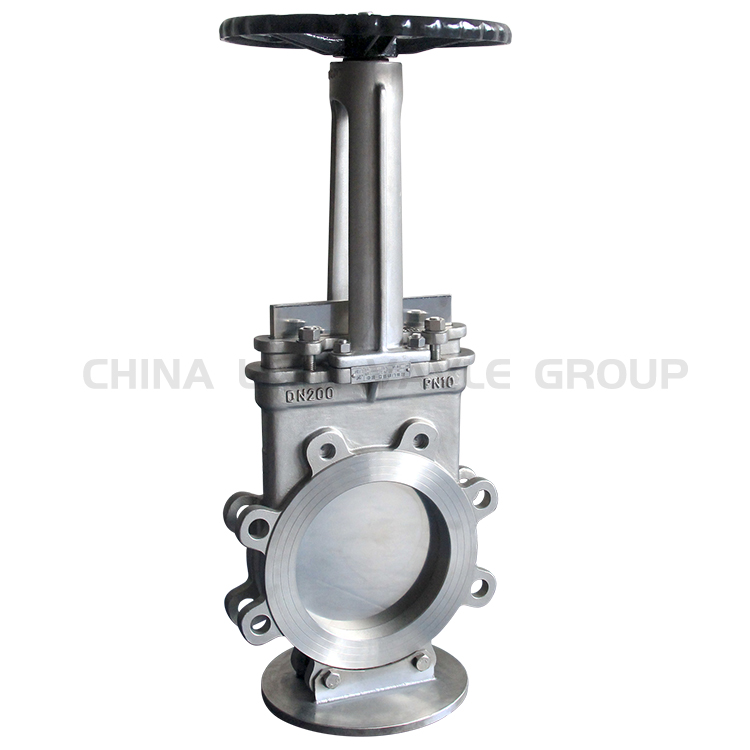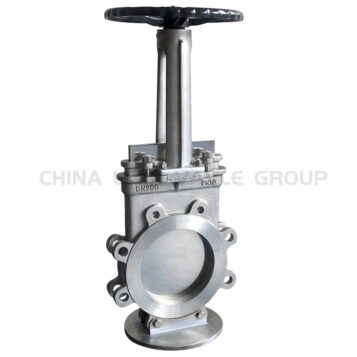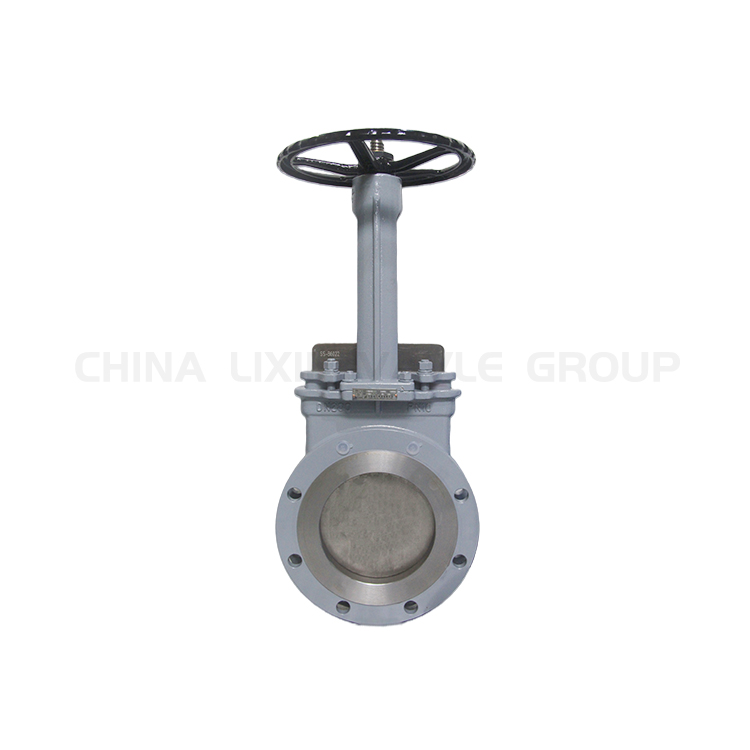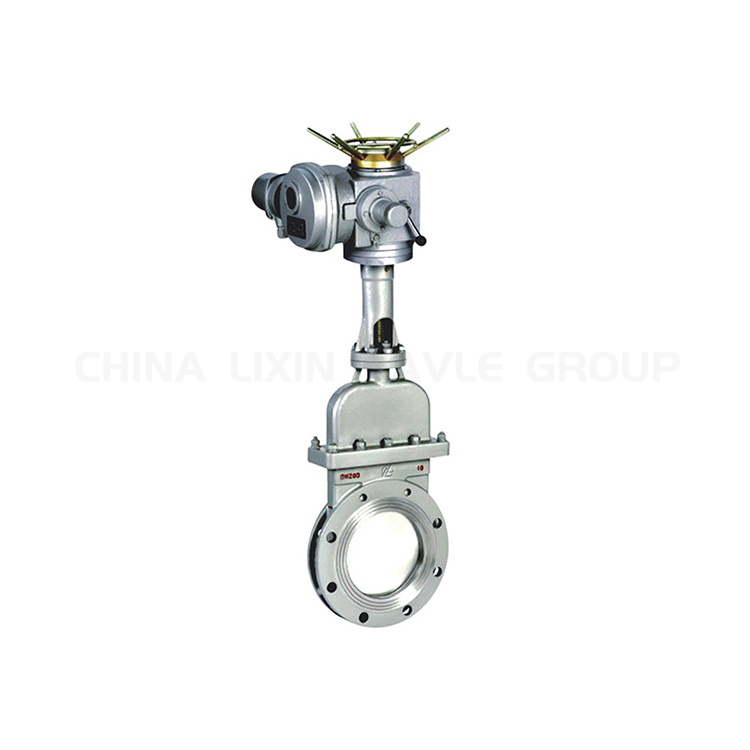What Is a Knife Gate Valve and How Does It Work?
In the realm of industrial flow control, knife gate valves stand out as highly reliable and versatile components. Their unique design and construction make them ideal for a wide range of applications, spanning various industries. Be it the mining, wastewater treatment, or chemical processing industries, knife gate valves deliver unparalleled performance and durability. In this comprehensive guide, we delve into the intricacies of knife gate valves, exploring their mechanism, applications, and the factors to consider when choosing the right valve for your specific needs.
Unlocking the Mechanism of Knife Gate Valves
The ingenious design of knife gate valves sets them apart from other valve types. They feature a sliding gate or blade that moves perpendicularly to the flow of the medium. This gate is typically made of a wear-resistant material, such as stainless steel or hardened steel, ensuring longevity and resistance to corrosion. The gate is guided by two parallel seals, forming a tight seal against the valve body to prevent leakage.
The gate’s movement is controlled by a stem, which is connected to an actuator. The actuator can be manual, operated by a handwheel or lever, or automated, using electric, pneumatic, or hydraulic power. When the actuator is engaged, it drives the stem, causing the gate to move up or down, thereby controlling the flow of the medium.
Unveiling the Applications of Knife Gate Valves
Knife gate valves have earned their place in a diverse spectrum of industries due to their exceptional capabilities. Their inherent design makes them suitable for handling various fluids, including water, wastewater, slurries, and corrosive chemicals. Here are some prominent applications where knife gate valves excel:
1. Mining Industry: Knife gate valves play a crucial role in mining operations, regulating the flow of abrasive slurries and tailings. Their ability to withstand harsh conditions and handle large solids makes them ideal for this demanding environment.
2. Water and Wastewater Treatment: In water treatment facilities, knife gate valves are used to control the flow of water, ensuring efficient distribution and proper treatment. They also find application in wastewater treatment plants, where they help manage the flow of wastewater and prevent contamination.
3. Chemical Processing: Knife gate valves are indispensable in chemical processing plants, where they regulate the flow of corrosive and hazardous fluids. Their robust construction and ability to maintain a tight seal prevent leakage and safeguard against accidents.
4. Power Generation: In power plants, knife gate valves are employed to control the flow of water and steam. Their reliable operation and ability to withstand high temperatures and pressures make them essential components in power generation systems.
5. Food and Beverage Industry: Knife gate valves are widely used in the food and beverage industry, where they ensure hygienic and efficient processing of liquids and semi-solids. Their sanitary design and ease of cleaning make them ideal for this sensitive industry.
Choosing the right knife gate valve for your application requires careful consideration of several factors:
1. Valve Size: The valve size must align with the required flow rate and pipe diameter. Select a valve with an appropriate size to ensure optimal flow control and minimize pressure drop.
2. Materials of Construction: The materials used for the valve body, gate, and seals should be compatible with the medium being handled. Consider factors such as corrosion resistance, temperature rating, and wear resistance.
3. Pressure Rating: Ensure that the valve’s pressure rating exceeds the maximum pressure in your system. This prevents valve failure and ensures safe operation.
4. Temperature Range: Select a valve that can withstand the temperature range of the medium being handled. Consider both normal operating temperatures and potential fluctuations.
5. Actuation Type: Choose the appropriate actuation type based on the desired level of automation and control. Manual actuators are suitable for simple applications, while automated actuators offer remote control and precise operation.
6. Sealing Capabilities: Pay attention to the valve’s sealing capabilities to prevent leakage. Different seal materials and designs are available to cater to specific applications and media.
Embracing Knife Gate Valve Manufacturers for Reliable Solutions
When procuring knife gate valves, partnering with reputable manufacturers is essential. Lixin Valve Group possesses the expertise, experience, and resources to provide high-quality valves tailored to your specific requirements. We adhere to rigorous quality standards, ensuring the valves meet industry norms and regulations.
Look for knife gate valve manufacturers who offer comprehensive services, including design, engineering, manufacturing, testing, and after-sales service. This ensures a seamless experience from product selection to installation and maintenance.
Knife gate valves stand as powerful and adaptable components in industrial flow control systems. Their versatility, durability, and ease of operation make them indispensable across a multitude of applications. By understanding their mechanism, applications, and selection criteria, you can make informed decisions when choosing the right knife gate valve for your specific needs. Partnering with reliable knife gate valve manufacturers guarantees superior quality, exceptional performance, and long-lasting reliability.










